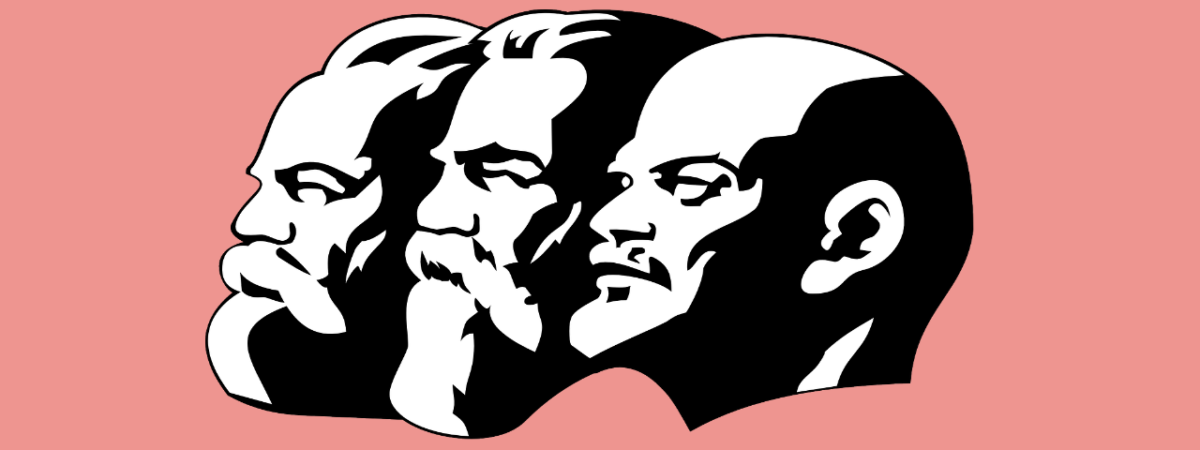How Greenpeace and the Guardian Believe the IEA Runs the World
SUGGESTED



This is the strange tale of how Greenpeace and the Guardian newspaper colluded to attempt to show that the IEA is an all-powerful, Illuminati-style puppet-master controlling the apparatus of government on both sides of the Atlantic to ensure that the corporate elite remain in charge.
It all began in Copenhagen in May, where I was at the annual Europe Liberty Forum, which brings together free market think tanks, activists and academics from across the Continent. One attendee went by the name of Tom Delacy. He was registered as from a group called “Trade is Great” though he explained he was really with a public affairs firm called Harrison Boyd. He seemed a nice enough chap, and we chatted happily about the IEA, the work we were doing specifically on trade and whether there might be ways for us to work together. He and a colleague had previously met with the Atlas Network, the organisers of the Copenhagen forum, who’d suggested that they would find lots of free trade enthusiasts in Copenhagen that week if they wished to come along.
He did seem particularly obsessed about how many times we met with government ministers to discuss policy, but rather clueless about the details of trade policy itself. Things didn’t seem to quite stack up, but a search for Harrison Boyd did reveal it was a firm based in Canada (their office address even showed up google maps). They also had their own website, which was limited on content, but still broadly had the look of a boutique PR agency (now deleted).
Somewhat suspicious, but willing to give Mr Delacey the benefit of the doubt – I discussed the matter with Michael Carnuccio, my opposite number at the E-Foundation, a pro-market institute in Oklahoma, who we have been working with closely to foster better US-UK trade relations.
About a week later Mr Delacy asked if he and his colleague ‘Emma’ could meet my colleague Shanker Singham, who heads up our trade team at the IEA, and me. By this time, we had checked the website ownership of ‘Trade is Great’ [also now deleted] to find that the website ownership was paid to be hidden and we’d spoken to friends in Canada.
Other things did not feel right. I was going back and forth by phone and email quite a lot with the E-Foundation at that time and we compared notes on our ‘too good to be true’ though wholly untraceable new friend.
But we met with Mr Delacy. I confess to not being too concerned at the time – this was a follow up meeting not a ‘deal-making’ one, with the next step being for us to complete due diligence on Harrison Boyd and for us then to confirm in writing precisely what our terms were for any donation before we received it (such as clarity that donors do not influence the contents of IEA reports, see the report prior to release and to confirm clients are not a state organisation, amongst other things).
At our meeting, which it transpired he taped, we discussed a wide range of issues – including the IEA’s interactions with politicians, the fact that donors cannot and must not influence the conclusions of our work and the broad thrust of the IEA’s finding in the trade area (concern that regulatory alignment with the EU might inhibit future trade deals, criticism of the “precautionary principle” and its damaging effect on innovation etc).
This week, while away in the USA, I learned that the whole elaborate set-up was part of some madcap campaign by Greenpeace to expose the IEA’s working practices and to shine a light on our wide-ranging influence on world affairs. All of which would be flattering if it wasn’t all rather childish.
Firstly, we showed how we were willing to talk quite openly about our ideas and business approach with a potential supporter, even one we regarded with considerable suspicion and without having conducted due diligence.
Secondly, like most, if not all, think tanks, we relish the opportunity to discuss ideas with policymakers and politicians. Simply producing research papers or pamphlets that no one takes any notice of would be a forlorn exercise. The fact that we can get a hearing from politicians across the spectrum is a matter of considerable professional pride to us at the IEA, not of any embarrassment. I’m not sure how effective we are in educating politicians about free market ideas, their profession often requires them to consider short-term and tactical decisions, whereas think tanks tend to provide a longer-term strategic perspective.
We organise dozens of events every year, usually held at our offices in Westminster, in which we bring together politicians, advisers, businesses, journalists, academics and IEA donors to discuss a wide range of different policy ideas.
This seems to concern Greenpeace and the Guardian as being “cash for access”, completely missing the point that we can’t control or guarantee any sort of access to or any sort of sanction against any politician. MPs attend our events entirely of their own volition and we have no ability to enhance or diminish their careers. If politicians speak to us, it is because they want to and think we have something useful to say.
There is an enormous job of education to be done – especially on trade policy – in part because the UK hasn’t had one for over forty years. The IEA aims to be a resource for anyone who finds our work useful, irrespective of party, ideology, Remain or Leave, backbencher or minister or, indeed, politician or non-politician. We provide analysis without favour so that people can be as educated as possible on these complex issues.
We are accused of being both ideologues and corporate shills at the same time, which is rather difficult to reconcile. PR companies simply represent the interests of their clients, the IEA makes representations based on a wider free market perspective. This might be useful for IEA donors, but the commitment to free markets pre-dates any donor relationship. There are no circumstances in which we would put forward anti-market statements or research because a donor wished us to do so.
There also seems to be a concern from Greenpeace and the Guardian that we support a “hard Brexit” and are somehow engineering one. However, our work focuses around a Brexit that delivers free trade and open markets. We believe this approach – which we have advocated irrespective of our membership of or departure from the EU – will deliver effective long-term economic solutions far beyond the blinkered and day-to-day interests of governments or bureaucrats.
In fact, during the referendum, the IEA took no official stance on the outcome of the Brexit vote (indeed, we take no corporate stance on any specific policy issue). Our staff were split on the issue, and our spokespeople are on the record on either side of the debate. I debated the issue live on CNN with a fellow IEA employee. Shanker Singham, who joined the IEA in March 2018 to focus on Brexit-related trade and competition issues, was pro-Remain.
Prior to the Brexit vote, we published major works in 2010, 2012, 2015 and 2016. One of our primers from 2013 explaining the role and value of free trade has been translated around the world, including in Farsi, Korean, Arabic and Armenian. Our earliest work on this stems back to the 1960s.
We get criticised about transparency, whilst consistently making clear that we respect the privacy of our donors and don’t place a list of them in the public domain. It is a matter for individual donors whether they wish their donation to be public or private – we leave that entirely to their discretion –many of whom do publicise this.
To see the full list of accusations made by Greenpeace and the Guardian, along with the IEA’s responses, click here. Unfortunately, we were refused a full transcript or recording of their undercover ‘interview’, which seems a little odd for a campaign supposedly promoting transparency, but we have replied as best we can from the snippets they have furnished us with and from memory.
The Institute’s editorial and policy output is decided by its research team and Academic Advisory Council. In other words, we make independent editorial decisions and then seek funding.
It is surely uncontroversial that the IEA’s principles coincide with the interests of our donors. A cursory look at other think tanks would confirm this.
For example, the think tank Reform have several donors in the healthcare industry and undertake significant work on NHS reform. The New Economics Foundation take a significant amount of taxpayers’ money from NHS England and undertake work in this area, whilst the IPPR are funded by BP and Shell and do work in the energy field.
And our detractors are obsessed with claiming we cannot be an educational charity, yet steadfastly refuse to acknowledge the huge amount of work we do directly for students and teachers, at schools and universities.
They aren’t interested in the vast number of events and conferences we run, or our annual THINK conference which saw over 500 sixth formers and students attend The Royal Geographical Society for a day full of talks, seminars and an in-conversation session with Nobel Prize Winner Vernon Smith. They don’t care about the hundreds of students we mentor every year. They ignore the fact we publish a hugely popular magazine – EA which reaches nearly every A-Level economics class in the country.
We believe that capitalism and free markets lift millions out of poverty; we believe that an informed and educated approach to Brexit is necessary if we wish to see it deliver enhanced freedoms; we believe in showing how the application of market processes can improve people’s lives right around the world.
Yes, we need to seek donations. But these follow our ideas – our ideas do not follow money. Yes, we seek to influence and educate politicians, in the same way we do students. What would be the point of having any research at all if we didn’t promote it?
We have rigorous and academic work that we wish to promote; we exist to be thought-provoking and influence the climate of opinion.
I suspect the obsession of some anti-market campaign groups and journalists with the IEA lies principally in recognising the amazing impact the Institute has achieved for a relatively small turnover of around £2.5m per annum (The Guardian Media Group’s turnover is at least £200m, Greenpeace’s income in the UK is something like 10 times bigger than the IEA’s).
But there’s a very long way to go before the IEA can consider its mission complete. And that means many more politicians, advisers and journalists to educate.
23 thoughts on “How Greenpeace and the Guardian Believe the IEA Runs the World”
Comments are closed.





Yeah but who fnuds you?
Great little write-up, thanks. Along with many, I suspect, I didn’t know about the range of educational work that the IEA undertook.
Mark, is the IEA a wholly neoliberal organisation? Are you, at all interested in narrowing the (ever-widening)
gap in wealth distribution?
I’m sure they will be screaming ‘Who funds you’, from the Cayman Islands of course.
Long article worthy of Donald Trump. You block people on Twitter for merely asking who funds you. You claim to have ‘ experts ‘ working for you , yet non of them are of world renown. What has happened is you have been dragged into the spotlight and are now under scrutiny . You don’t like that. Until such time as you become transparent , do not expect to be taken seriously Paid shills never are
I suggest you make a deal with Greenpeace – you will give up trying to influence politicians and decision-makers if they do.
Sadly I find nothing in this sorry tale of deception extraordinary or surprising. The sheer and total inability of Progressives to see that there are two sides to most arguments is a feature of our world now. That Greenpeace can think its own lobbying is perfectly acceptable but yours is somehow wrong and evil is par for the course. They of course are right and virtuous and you are not, so they can do what they want but you cannot.
No matter, keep up the good work!
Who funds the IEA?
You’ve been caught, just like Alexander Nix. You can not deny what you confessed without realising you were being recorded. I hope you hate every second that you are in prison. You will end up there, you won’t evade justice.
So who funds the IEA?
“He was recently ranked number 45 on the right-wing power list.”
This reference to the Daily Telegraph’s list of “Top 100 most influential Right-wingers” surely requires at the very least a serious qualification to the effect that the IEA, and Mark Littlewood in particular, do not consider themselves “right-wing”! In fact, I suggest that it would be best to omit this particular “accolade” entirely. It might be rather different if Mark were also included in a list of the “Top 100 most influential Left-wingers,” but that’s not going to happen anytime soon given how these terms are used today.
Who funds the IEA?
Unfortunately, this patient, logical explanation of what a think tank does is likely to be entirely lost on the leftist headbangers who would rather imagine a vast conspiracy that just admit there’s another viewpoint than their own.
Unfortunately, this patient, logical explanation of what a think tank does is likely to be entirely lost on the leftist headbangers who would rather imagine a vast conspiracy that just admit there’s another viewpoint than their own.
In answer to Sally’s comment I will happily donate £100 towards their excellent work
Chris Neal
a.k.a. Spartacus 🙂
Who funds the IEA is of course a very good question, a question that will not be answered of course. The IEA will tell you that it is up to the donors if they wish to remain anonymous, the truth is it’s funded by business donors who want to influence government policy.
The IEA unlike Greenpeace is not a charity it’s a lobbying organisation hiding behind the cloak of a charity. It’s time the charity commission removed their charitable status.
I’ll be donating today. It won’t be much, but the number of reports and papers that you’ve produced over the years that I’ve read for free and found thought provoking more than justifies it.
So the next time someone breathlessly demands to know who funds the IEA, I can say “I do”.
Well, Tim Hammond, I guess the difference is that the lobbying of Greenpeace won’t have the inevitable consequence (according to the scientific community) of incinerating the planet. But I guess your financial interests take precedence over that. Overall, a remarkably lame response from Mr Littlewood, but it’s nice to see the honesty of the statement that “the IEA’s principles coincide with the interests of our donors”. Which means that the IEA gives priority to the profits of fossil fuel companies etc. Case closed, I would have thought.
“Who funds the IEA”? Says it all really. If that is all you can post why bother Sally.
If you look at any research paper in the natural sciences which might have business or other commercial implications (for example, pretty much anything in medicine), you will see a statement of funding and either a declaration of competing interests or an explicit statement of their absence.
The conclusion to draw for think tanks in the social sciences is this. If you want your work to be taken seriously as research, you must make full disclosure of funding and of any competing interests. Arguments like “We respect the privacy of donors” or “We ensure that the research director is not influenced by knowledge of funding” (an argument that the IEA has used in the past and maybe still does) just do not stand up. If on the other hand you want your work to be taken as advocacy, and not as research, you are doing fine.
A comment worthy of Zoolander, Sally.
Greenpeace are buffoons and I am very pleased that you have stood up to them.
Talk about fake news! Very Good rebuttal!
“we take no corporate stance on any specific policy issue”
Yet the IEA seems to push for the legalisation of Cannabis, it has done for years, is that just Christopher Snowden freelancing or does it have conscious support from the organisation? The cry is on your website.
The current information posted in the BMJ this week seems to indicate that Cannabis is Teratogenic.
The last time a Teratogen was widely promoted in the UK as a medication it was Thalidomide.
We all know how that turned out.